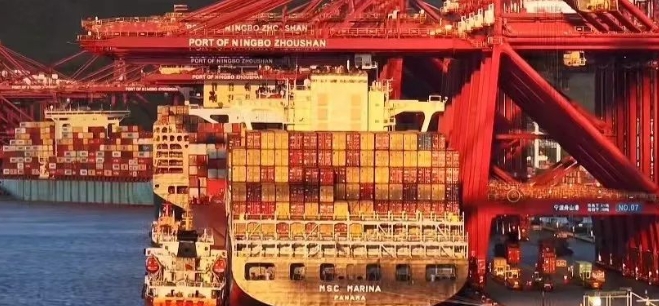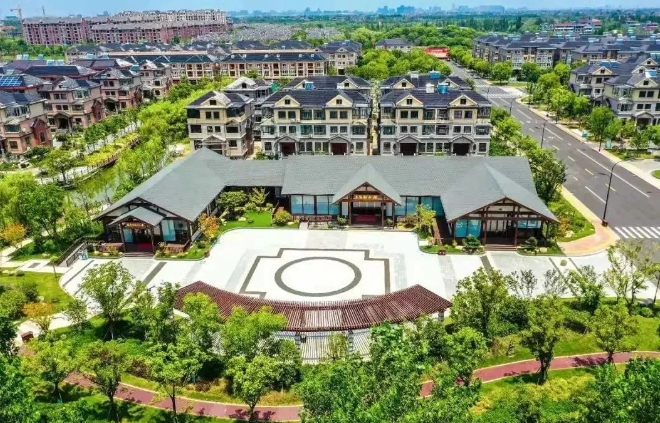Zhejiang: Why is it Known as China’s Wealthiest Province?
Everyone knows that Zhejiang is impressive, but economically, it lags behind Guangdong and has a lower per capita GDP than Jiangsu. So, why is it called the “First Province of Common Prosperity”?
Zhejiang, abbreviated as “Zhe,” covers an area of 110,000 square kilometers with a population of about 66 million. Its capital is Hangzhou, and it ranks fourth in China in terms of economic output. Zhejiang is also the first demonstration zone for common prosperity and has the smallest economic disparities in the country.
It boasts the highest number of top 500 private enterprises in China, leads the nation in foreign investment and trade surplus, and ranks first in e-commerce trade. Urban residents’ per capita disposable income has been the highest in China for 20 consecutive years, while rural residents’ per capita disposable income has held the top spot for 36 years.
All 11 prefecture-level cities in Zhejiang are among the top 100 cities for resident income, and it has the most wealthy counties in the country. With around 7 to 8 million businesspeople, Zhejiang leads the nation in entrepreneurial spirit.
In Zhejiang, one in every nine people is a business owner. The province is home to six of China’s top ten richest individuals, including prominent figures like Ding Lei from Wahaha, Zhong Shanshan from Nongfu Spring, Jack Ma from Alibaba, Ren Zhengfei from Huawei, Chen Tianqiao from Shanda, and Huang Zheng from Pinduoduo.
Zhejiang is known for its rapid development and thriving commerce, a result of generations of hard work. A familiar saying about the province is “seven mountains, one river, and two fields.”
Despite limited land and other resources, Zhejiang has achieved remarkable economic miracles. For example, Jiashan County, with a local population of only 300,000, produces a third of China’s Jiaohua boards, despite having no forests or timber production.
This small Jiangnan county’s productivity surpasses that of Malaysia, a leading plywood nation. From Yiwu, where traders carry goods to exchange for candy, to a global hub of trade, Zhejiang’s entrepreneurial atmosphere is astounding.
Each city in Zhejiang excels in different industries: Hangzhou as China’s e-commerce city, Zhoushan as the “fish town,” Huzhou as the “land of fish and rice,” Taizhou as the “hometown of tools,” Yongkang as the “hardware capital,” Shaoxing as the “cultural capital,” Lishui as the “green valley,” Jiaxing as the “southern water town,” Ningbo as the “hometown of academicians,” and Jinhua as the “ham hometown.”
Zhejiang is not only business-savvy; it is also home to beautiful landscapes and a wealth of famous islands, towns, and villages. It features the world heritage site of West Lake in Hangzhou, the largest film and television production base in China at Hengdian, and the four major Buddhist mountains of Putuo Mountain.
With the first mountain in Southeast China, Yandang Mountain, the largest archipelago in China, the Qiandao Lake known for its stunning waters, and the remarkable Qiantang River, as well as the Grand Canal—one of the longest and most significant engineering projects in the world—Zhejiang has much to offer.
Zhejiang people adapt to their environment and have transformed this not-so-wealthy place into a true land of fish and rice. As the birthplace of Wu and Yue culture, many renowned figures have emerged from here. Notable historical figures include Sun Quan, King Goujian, and the beautiful Xishi; modern figures include poet Xu Zhimo and writer Lu Xun, the father of modern Chinese literature.
The province also produced nuclear physicist Qian Sanqiang and martial arts novelist Jin Yong, among many others. The resilient and united spirit of Zhejiang people, who work hard and share warmth, truly makes this province remarkable. Let’s celebrate the greatness of Zhejiang!